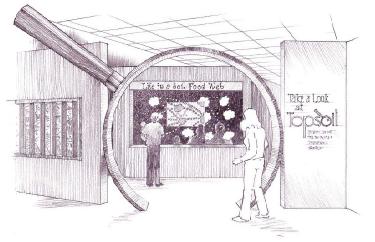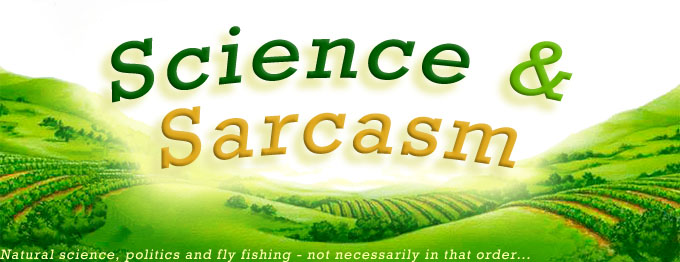From the eye of the potato, #1
Agriculture News

The Smithsonian Institution, the Soil Science Society of America (SSSA), and others are planning a 5,000 square foot soil exhibit at the National Museum of Natural History in Washington, D.C. The projected opening for the “Soils:Worlds Underfoot,” exhibit, is 2008. The exhibit will occupy one entire hall of the museum and will be displayed for 1.5 years. It will feature state soil monoliths and interactive soil displays. Each of the 50 states and three U.S. territories will donate a monolith of their state soil for the display. A separate mobile exhibit will travel to hundreds of museums, schools, and libraries with soil education kits, web-based activities, curriculum, and career information.
The exhibit is expected to require 2+ years for the Smithsonian to design, build and install. Sponsored by the SSSA, the final decision about exhibit building, design, and content rests with the host: Smithsonian's National Museum of Natural History. The total cost is projected to be $4 million.
The exhibit will emphasize the living, biological nature of soils, the variation in soils from one region or locality to another, the dynamic nature of soil, the role soil plays in linking the earth's air, land and water resources, and the importance of taking care of our non-renewable soil resources.
A Stanford University study, published in the Proceedings of the National Academy of Science confirms the ecological benefits of organically produced apples. In the study, orchards fertilized with composted chicken manure or alfalfa meal leached less nitrate into groundwater than the conventionally fertilized plots. Plots supplied with a 50/50 blend or organic and synthetic fertilizers leached an intermediate level of nitrates.
The organic and integrated plots produced more non-harmful N2 gas than conventionally fertilized trees, but all 3 treatments produced a similar amount of N2O, a greenhouse gas.
Agriculture commissioners from North Dakota, Massachusetts, West Virginia and Wisconsin met with Drug Enforcement Administration officials in late February to explore acceptable policy changes on industrial hemp farming. Farmers wish to grow non-psychoactive, low-THC industrial hemp for use as foods, animal bedding, biofuel and paper. Pro-hemp farming laws have already been passed in Hawaii, Kentucky, Maine, Maryland, Montana and West Virginia. California and Vermont currently have legislation pending on the issue.
I did not unearth this nugget here.
Technorati tag(s): science, agriculture, blogs & links
The Fly Fishing Loop is sponsored by flydepot.com
[ Home Waters | Next | Random | List | Search ]

This work is licensed under a Creative Commons Attribution-NonCommercial-ShareAlike 2.5 License.





